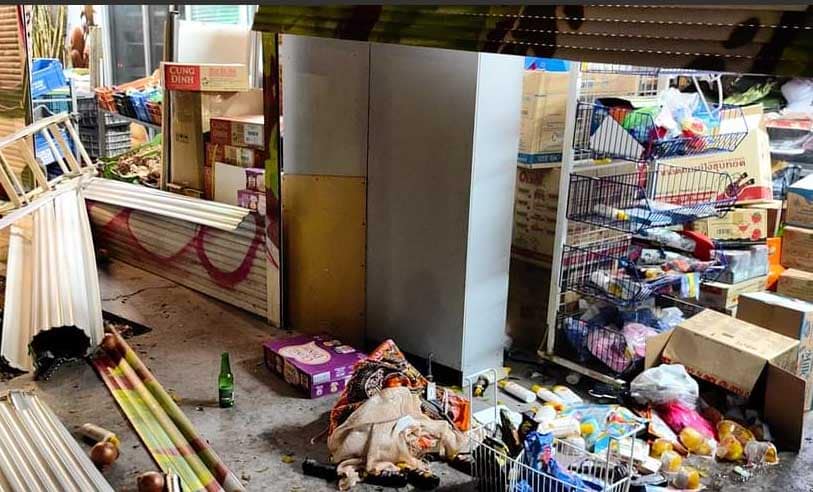Scores of riot police officers surrounded Limassol criminal court on Wednesday, as 13 suspects linked to the racist violence against migrants last month arrived for their hearings.
The date of the hearing was postponed to November 6, as the majority of the 13 suspects asked for state legal aid.
The judge set the next date for just under two weeks, until the applications are processed.
The 13 suspects are aged between 16 and 50, and face charges including rioting, stabbing, assaulting police officers, causing malicious damage, demolition of buildings by riots, assault causing actual bodily harm, assault and arson.
While the case was ongoing, a group of demonstrators were outside with placards reading “they are not innocent. Fascists in jail” and “Cypriot and foreign workers united.”
The riots took place on September 1, as an anti-immigrant protest quickly turned violent, with migrants beaten on the streets, and businesses of Middle Eastern background deliberately targeted and smashed, with Molotov cocktails thrown.
Police’s failure to contain or stop the violence prompted mass calls for the police chief and justice minister to resign, in what was described as an abject failure by the force.
The police chief himself Stelios Papatheodorou dodged questions in parliament on whether institutionalised racism was a problem in the force, and conceded police could have intervened earlier during the riots to put a stop to the violence and destruction.
Twelve of the 13 suspects are free on conditions, while one person is at the central prisons, as he is a convict that had been released from jail with an ankle bracelet.
A 26-year-old man is facing a separate case linked to an arson attack against a barber shop in Anexartisias street. He was arrested on September 29 after forensic evidence linked him to the scene.
Last month, migrants whose businesses were upended during the riots told the Cyprus Mail that despite assurances of support, they had not actually received any help, and many had lost their sole source of income. Deputy government spokeswoman at the time Doxa Komodromou said “the government has no legal or constitutional obligation to help them.”







Click here to change your cookie preferences